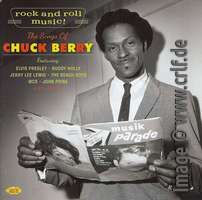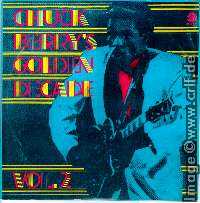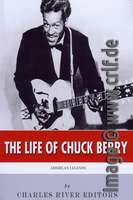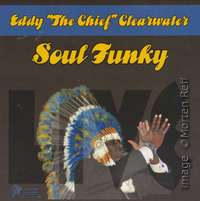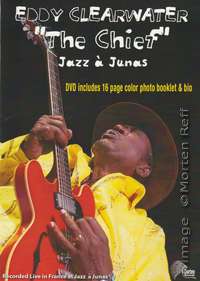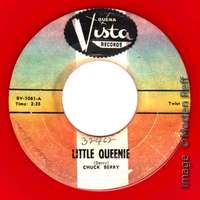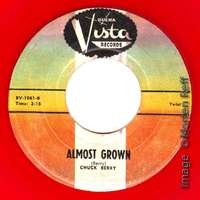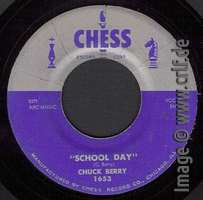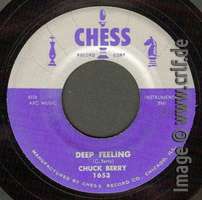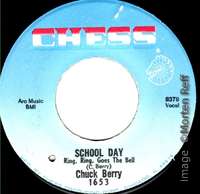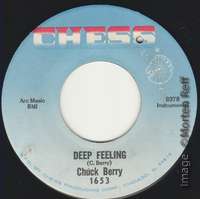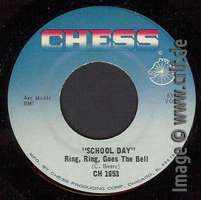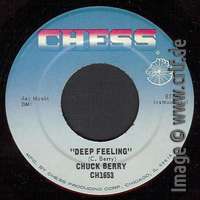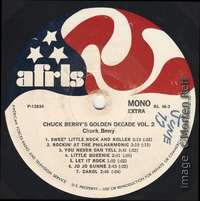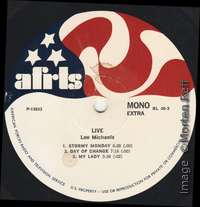Wednesday, April 5. 2017
The Songs of Chuck Berry - by ACE
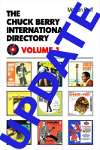
Here's Morten's addition to CBID, the Chuck Berry International Directory:
TRIBUTE ALBUMS
VARIOUS ARTISTS
CD: Rock And Roll Music â The Songs Of Chuck Berry
Ace CDCHD 1491 • UK, 2017
Roll Over Beethoven (Helene Dixon, USA) / Around And Around (The Swinging Blue Jeans, UK) / Down Bound Train (Ken Colyerâs Skiffle Group, UK) / Maybellene (Marty Robbins, USA) / Come On (Ian Gomm, UK) / Memphis (Don Covay, USA) / Oh Baby Doll (The Pretty Things, UK) / Nadine (The Bunch, UK) / Little Queenie (Jerry Lee Lewis, USA) / Iâm Talking About You (The Remains, USA) / Brown Eyed Handsome Man (Buddy Holly, USA) / Johnny B. Goode (Jay And The Americans, USA) / Sweet Little Sixteen (The Hollies, UK) / Too Much Monkey Business (Elvis Presley, USA) / Almost Grown (Syndicate Of Sound, USA) / No Money Down (John Hammond, USA) / Beautiful Delilah (The Cound Bishops, UK-USA) / Havana Moon (Santana, USA) / Back In The USA (MC5, USA) / You Canât Catch Me (Sleepy LaBeef, USA) / Rock And Roll Music (The Beach Boys, USA) / You Never Can Tell (John Prine, USA) / Run Rudolph Run+ (Dwight Yoakam, USA) / Promised Land (Dave Edmunds, UK)
24 classic songs from the Poet Laureate of RockânâRollâs matchless catalogue as the cover tells us. Interesting compilation put together by one Tony Rounce who has also written the liner notes with each song being examined by the way of performance by the individual artists and groups. If you need any additional info check out Vol.3 of CBID, so thereâs no need for me to comment on the tracks. However, I wished they had picked a better version of âRun Rudolph Runâ.
So far for Morten's entry to CBID written early March. We should add that the same CD is also offered in Japan as P-VINE PCD-17762. And after having received the CD, Dietmar would like to add these comments to the review:
What impressed me with the new Ace CD was how much energy Ace has spent creating it. Although it's almost expected with Ace's long list of excellent albums. The 16 page booklet not only explains the recordings in detail, it also shows cover and label images of each. In addition the selection itself is astonishing. They not only included some of the oldest cover versions (Marty Robbins: 1955, Helene Dixon: 1956, Ken Colyer: 1956 in the UK!!). They also selected both prominent names (Elvis, Buddy, Jerry Lee) and groups I had never heard of. The recordings span more than 40 years and many of the interpretations are notably different from Berry's original tunes.
This album is highly recommended. You'll find a list of web shops here.
Monday, April 3. 2017
Piano Overdub on Carol recorded 1958 released 1973 found 2017
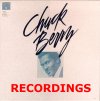
Chuck's work for Chess records is known pretty well nowadays. We have heard the 1950s recordings over and over, first on their original releases, then on all the 1970s re-releases, next when transferred to CDs, then in complete by HIP-O Select and Bear Family. So we should know them by heart.
Then last week Willem Moerdijk asked me:
According to your info, only one Chess take of Carol has been found. I think I may have found a second take. I noticed differences in the piano playing.
Willem included an MP3 of the version he found. It's a version most Chuck Berry collectors have sitting on the shelf. But yet it is different.
Get any of your records containing the 1958 hit Carol and listen to it. Now locate you old copy of Chuck Berry's Golden Decade Vol. 2. Carol is the very first track on side one. Play it. Hear any difference? Probably not. The singing is completely identical as is the guitar playing.
However, Willem is an expert on Jerry Lee Lewis. So he did not care about the guitar or the singing. He heard the piano. And he heard a different piano.
After a week of discussions and with the help of Arne's technical expertise (Thanks, Arne!) we finally have to agree with Willem.
The recording of Carol on Chuck Berry's Golden Decade Vol. 2 (Chess 60023, USA, 1973-02) is different indeed. It contains the exact same recording as the usual version, but there's another piano line. Listen for instance to the solo near the end of the song (at 2:33): On the 'new' version you can clearly hear the pianist performing a slide (glissando). On the 'common' version it isn't. There are some other piano differences at the beginning of the song and in between as well. The differences are minimal and you need to have a good and piano-trained ear to spot them.
Since the singing, the guitar, and even the original piano lines are exactly the same on both variants, it's clear that this is not a different recording/take. Instead it seems that Chess overdubbed another piano track onto the recording, probably because the original piano was pretty thin in the mix. Remember that in 1958 Chess recorded in Mono to a single tape. No way to enhance the original piano line later. Note that also the guitar was overdubbed, but this is identical on both variants, so must have taken place before the piano overdub. Why the enhanced variant did not make it to the original release, remains unknown.
The inclusion of this 'new' variant on Chuck Berry's Golden Decade Vol. 2 (again I show the much prettier UK cover) fits to the known facts about this strange release. Collectors had already found differing variants of Let It Rock (missing the guitar overdub) and Betty Jean (previously unreleased take) in this set. Since all three variants on Chuck Berry's Golden Decade Vol. 2 sound very much like their 'correct' releases, we doubt these were released intentionally. Especially as the liner notes don't tell anything. Or maybe some re-release engineer tried to tease us. In this case he succeeded for 44 years!
If you don't have the original 2-LP set, listen to other late 1970s re-releases. We have found the piano overdub on a few other albums. We haven't found it on any CD, though. If you do, let us know.
Many thanks to Willem, of course!
Friday, March 31. 2017
Picture Sleeve for CHESS 1883 Nadine - counterfeit or real?
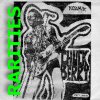
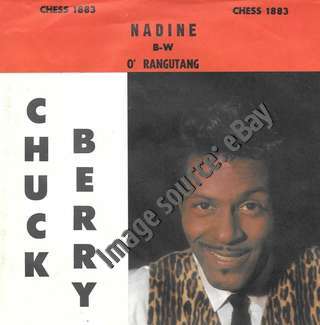
Why did this collector pay that much? Because nobody I know has ever seen this sleeve before.
There are similar looking picture sleeves for the CHESS singles following Nadine. But a PS for 1883 has been unknown.
We wonder if this sleeve truly is a genuine product. Or whether it's one of the many counterfeit picture sleeves popping up lately. Since the image on eBay looks reasonable and since the seller seems to be trusted, it may in fact be a long-lost item.
If you've been the buyer, let us know once you received it. What is your opinion?
Addition by Morten Reff:
Collectors should know that some of the US 45 picture sleeves had the titles only on one side whereas the other side had the same image and layout but no song titles. I also have one of these sleeves which has no song titles on both sides. Which would make it easy to imprint whatever you want.
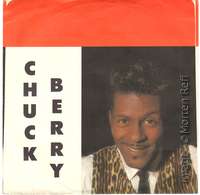
Friday, March 24. 2017
The Life Of Chuck Berry by Charles River Editors
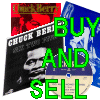
At this price I wasn't too disappointed when it arrived here the next day. You probably won't call it a book at all. It's a leaflet of less than 25 sheets of paper. This certainly is not enough for a paper book. But it is a custom size for a Kindle eBook. And that's what you get: the printout of a Kindle eBook. And it's just a sequential printout without any layout whatsoever. No page numbers. Ten-line pages because the following image is too big to fit. And so on.
What puzzled me the most was that this book doesn't have an author. It doesn't even have a copyright note. Charles River Editors is a company which publishes eBooks about almost every topic you can imagine, hundreds of which are sold by amazon, apple and the likes.
Typically this kind of "books" consists of nothing more than wikipedia articles pasted. This is not the case with "The Life of Chuck Berry", though.
This booklet contains original text. It's well structured, not bad written and good reading. It covers Berry's personal life and career up to 2012 and it does so quite completely.
The book even has two pages listing a bibliography of sources. When writing a book about the life of Chuck Berry, sources should include Bruce Pegg's book, Berry's own autobiography, maybe the books by Howard DeWitt and John Collins, definitely Fred Rothwell's book. None, none of these important books is listed as a source! Instead the whole list of sources consists just of websites (and some magazine articles available on websites).
The unnamed author(s) obviously did not read any of the main sources. All they did was google'ing Berry's name and re-word their findings. So you won't find a quote from Berry's autobiography in this book. But you will find several quotes from reviewers who quoted from Berry's autobiography. That's odd! Why not read the original?
Therefore you will not find any first-hand information in this book. You will not find second-hand information either. All this is third-hand information.
Due to this, while most of the text is correct, there's an obvious error now and then. That happens when you copy and paste from sources who didn't know better.
This book is good for someone who wants to get a first impression about Chuck Berry's career. You won't need more than half an hour to read it. And you have seen the photos before. For readers of this site, it's not recommended at all.
Wednesday, March 22. 2017
Dualtone releases new Chuck Berry song

Here's a message distributed tonight:
Since Chuck's passing on Saturday, the Berry family has received many inquiries from friends, fans and media about the status of his forthcoming album CHUCK, which was originally announced on his 90th birthday, October 18, 2016.
Working to prepare the release of this record in recent months and in fact over the last several years brought Chuck a great sense of joy and satisfaction. While our hearts are heavy at this time, we know that Chuck had no greater wish than to see this album released to the world, and we know of no better way to celebrate and remember his 90 years of life than through his music.
For months now plans have been in place, and preparations have been made with our friends at Dualtone Records to reveal further details and music from the album this week. As a tribute to Chuck Berry, and with gratitude to his fans around the world, we will be following through on those plans in the coming days.
The Berry Family
Accordingly, Dualtone Records makes available a first song called Big Boys from this album at their website:
http://dualtone.com/chuck_berry
Sunday, March 19. 2017
In Memoriam - Chuck Berry
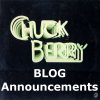
Once in Persia reigned a king who upon his royal ring carved these words so true and wise. Trains of camels through the sand brought him gems from Samarkand. In the revel of his court, at the zenith of his sport The most beautiful woman ever seen was the bride he chose his queen. Towering over the village square, thirty meters in the air Fighting furiously on a battlefield, once a javelin pierced his shield. Sick and sore with cancer; weak and tired and old, just minutes yet to go to pass the gates o' gold |
Chuck Berry, Pass Away, from the album âRockitâ |
Charles Edward Anderson Berry Sr. |
18 October 1926 â 18 March 2017 |
R. I. P. |
Thursday, March 16. 2017
CBID - addition to the Eddy Clearwater discography

CBID is never complete as new records and CDs appear and some old rarities are discovered. This section presents interesting additions and corrections to CBID.
Today: Besides covering Chuck Berry and Johnnie Johnson, CBID also has chapter 19 containing a session discography as well as record releases by the Berry-inspired US artist Eddy Clearwater. Here are three CDs and one DVD published after the book:
CDs
SOUL FUNKY
Cleartone 8882951 49358 • USA, 2014
They Call Me The Chief / Hypnotized / Too Old To Get Married / Good Times Are Coming / Came Up The Hard Way â Root To The Fruit / Cool Blues Walk / Please Accept My Love / Find You A Job / Lonesome Town / A Good Leavinâ Alone / Soul Funky / Ending Midnight Groove
If you canât get a record company interested you release it yourself! Thatâs the spirit.
Album recorded live 10 January 2014 at SPACE in Evanston, Illinois. Eddy Clearwater (vocals, guitar), Ronnie Baker Brooks (guitar, vocals), Shoji Naito (guitar, harmonica), Thomas Crivellone (guitar and introduction), Johnny Iguana (piano, hammond B3), David Knopf (bass), Stephen Bass (drums). Guest appearance by Billy Branch on âGood Leavinâ Aloneâ.
SOUL FUNKY â Live At Space
P-Vine PCD-17696 • Japan, 2014
Same as above. This was released in Japan on 12 December 2014.
SESSION WORK and GUEST APPEARANCES
Shoji Naito
NEW COOL OLD SCHOOL
Ogden Records ORCD-380 • USA, 2016
Big Boss Man / Iâll Change My Style / Last Night / Walking By Myself
Eddy is doing the vocals on the above four tracks and playing lead guitar on âLast Nightâ. The 14 tracks were recorded in Chicago June/July 2015. Shoji was born and raised in Toyota, Japan and moved to Chicago in 1996. Harmonica and guitar player. Co-produced Eddy Clearwaterâs âSoul Funkyâ CD from 2014.
DVDs
JAZZ Ă JUNAS â Recorded Live In Junas, France
Cleartone 78877 • USA, 2011
Otisâ Groove / They Call Me The Chief / Hypnotized / Find You A Job / Blues For Breakfast / Too Old To Get Married / Nashville Road / A Good Leavinâ Alone / Came Up The Hard Way / I Just Want To Make Love To You / Youâre Humbugginâ Me / Guitar Boogie Jam (instr) / I Wouldnât Lay My Guitar Down / Midnight Groove / Sen-Sa-Shun (instr)
Recorded live at the Jazz Festival in Junas, France 23 July 2011. Itâs an outdoor concert in a small village in the south of France. Interesting release including a 16 page colour photo booklet and liner notes written by Bill Dahl. Featuring Eddy on guitar and vocals, Thomas Crivellone (guitar), Shoji Naito (bass, harmonica), Stephen Bass (drums).
Just one little thing. Bill Dahl writes about the show but without telling the exact date. Why is it so damn difficult to include the recording data? I had to google to find the day he performed at Junas. Very annoying.
Tuesday, March 14. 2017
CBID - addition to the Johnnie Johnson discography

CBID is never complete as new records and CDs appear and some old rarities are discovered. This section presents interesting additions and corrections to CBID.
Today: An addition to chapter 18 in Volume 2. This chapter covers the session work and records by Chuck Berry's main musical partner Johnnie Johnson, recorded in addition to his work with Berry.
SESSION WORK and GUEST APPEARANCES
Kenny Rice
HOUSE PARTY
CD: Jam Jar Records JJ-002 • USA, 2015
Next Time You See MeJohnson does not play on other tracks.
A fifteen tracks CD containing songs recorded through four Decades. Problem is that nothing tells us which songs were recorded when and where, a real pity and almost unforgivable. At least it was recorded before April 2005 when Johnny passed away.
Monday, February 6. 2017
CBID - Chuck Berry at Walt Disney's Buena Vista Records?

CBID is never complete as new records and CDs appear and some old rarities are discovered. This section presents interesting additions and corrections to CBID.
Today: A Chuck Berry single from Walt Disney's Buena Vista Records?
TAIWAN (?)
Little Queenie / Almost Grown (red vinyl)
Buena Vista BV-1061 • late 1960s or early â70s
Now this is an interesting mystery. It turned up in January 2017, and after almost 50 years of collecting Berry records I have never seen or heard about it before. Thatâs really something!
Red colored vinyl. It looks very much like a bootleg and therefore itâs placed here under Taiwan. The US Buena Vista 45s had three digits, this has four and the label is not the common Buena Vista one.
Buena Vista was the product of the Walt Disney Corporation. And Chuck Berry has not once in the 60s or 70s been a part of that company. Why was this done in the first place? Go figure.
Many thanks to reader John for alerting us about this release.
Thursday, January 26. 2017
Chuck Berry's Early Recording Locations
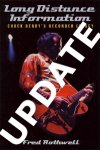
- 21 May 1955: Universal Studios, 111 East Ontario Street, Chicago
- September 1955: Universal Studios, 111 East Ontario Street, Chicago
- December 1955: Universal Studios, 111 East Ontario Street, Chicago
- 19 April 1956: Chess Studios, 4750-2 South Cottage Grove Avenue, Chicago
- 29 October 1956: Chess Studios, 4750-2 South Cottage Grove Avenue, Chicago
- 15 December 1956: Chess Studios, 4750-2 South Cottage Grove Avenue, Chicago
- 21 January 1957: Chess Studios, 4750-2 South Cottage Grove Avenue, Chicago
- 6/15 May 1957: Sheldon Studios, 2120 South Michigan Ave., Chicago
- 29/30 Dec 1957: Sheldon Studios, 2120 South Michigan Ave., Chicago
The Chess Label website, http://campber.people.clemson.edu/chess2.html states:
In 1953, the Chess brothers continued to make their sessions at Universal Recording in Chicago. But after moving from 4858 South Cottage Grove to 4750, Leonard and Phil Chess would open a small studio in the back of their new offices. Announced in a Billboard article on June 19, 1954, this was mostly used for demos. Any recordings made there and used for release had to be done on the sly. Every effort was made to insure that it wouldn't, but the makeshift studio did eventually come up on the radar screen at Local 208 of the Musicians Union. Leonard Chess had to appear before the Board 'to explain certain phases of his recording activity'. Chess stated that the office studio was only used for rehearsals and auditions, although he admitted 'several years ago this may have happened' because he was 'not in a position at all times to meet his financial obligations'.The writers of the site conclude:
We may be reasonably sure that there was no more recording for release in the back room studio after February 1956, when Leonard Chess was threatened with the revocation of his recording license.The first three Berry sessions pre-date February 1956 but the songs cut at Chuck's first session for Chess, Maybellene and Wee Wee Hours, both have a matrix number beginning with 'U' as listed in 'The Chess Labels' compiled from Chess files by Michel Ruppli (but not included on the record labels). This was until recently considered to stand for recordings made at Universal Studios, 111 East Ontario Street, probably the best recording studio in Chicago at this time. However, as the 'U' designation also appears on matrices that we know were not cut at Universal the letter must signify something else.
That said the aural quality of Chuck's first two recordings are such that they are most likely Universal recordings. The songs cut at Chuck's second and third Chess sessions which include Thirty Days, You Can't Catch Me and No Money Down were erroneously designated with a 'U' matrix in discographies but none of the matrix numbers on the labels of the singles or the info in Ruppli include the 'U'. However, the quality of these recordings which is much better than those cut at the rear of the offices at South Cottage Grove indicate that these too are Universal Studio recordings. In addition with Maybellene being Chess's first big cross-over hit it is unlikely that the brothers Chess would not record the vital follow-up of their hot new property at the best studio available.
The question remains were any of the four sessions listed above as recorded at South Cottage Grove actually cut at the makeshift studio? The session cut in April 1956 was a monster gig in which Roll Over Beethoven, Too Much Monkey Business, Brown Eyed Handsome Man and Drifting Heart were waxed. All classics and all of high audio quality. The contract details for this session exist which state 'recording studio' for the the location and whilst this is not specific it does indicate a proper studio rather than the office studio at South Cottage Grove so it seems there is little doubt that this session was cut at Universal.
The next session at which only Havana Moon was recorded presents more of a problem. Here the sound is so unusual compared to earlier recordings that this could well be a South Cottage Grove cut. However, it should be noted that blues-man Jimmy Rogers plays second guitar on Havana Moon and that on the very same day he cut his own single If It Ain't Me and Walking By Myself both of good audio quality indicating a Universal Studio location. Willie Dixon is also on both the Berry and Rogers' sessions so is it likely that they would record in two different locations on the same day? More strength to fact that the Rogers' session was cut in a recording studio rather than the Chess office at South Cottage Grove can be found in Rogers biography 'Blues All Day Long' written by Wayne Everett Goins. He recounts a first hand story from Jimmy Rogers about the harmonica player on the session Walter Horton, who was embarrassed by having to come to the recording studio in his plasterer's work clothes. So, on balance Universal is the most likely location for the Havana Moon recording.
The next two sessions dated 15 December 1956 and 21 January 1957 form the biggest quandary. In December 1956 the demo version of Rock And Roll Music is said to have been recorded four months before the master (single) cut was made. It has recently been established by the very attuned ears of Arne Wolfswinkel that this demo recording in fact has no bass present and it's just Chuck, Johnnie and Fred Below on the cut. It's known that the South Cottage Grove set-up was used primarily for rehearsals and demo cutting and the frugal Chess brothers did not like to have their artists running up Universal Studio time bills on preliminary run-throughs. However, some South Cottage Grove recordings did get a contemporary release, a prime example being I'll Be Home, The Flamingos' first big hit. According to Robert Pruter, in his 'Doo Wop The Chicago Scene' book, two versions were cut, first at South Cottage Grove then later at a larger more professional studio (probably Universal). Chess liked the earlier, rougher version and this was unusually used for the single. This being noted, the demo version of Rock And Roll Music may well have been a South Cottage Grove recording. What is also puzzling is why such a great song was not completed at this time? The song is essentially complete, so why wait four months before cutting the master? Could it be that the Rock And Roll Music demo is, in fact, an early take recorded at the May 1957 session that produced the single?
However, after much consideration and consultation with fellow Berry enthusiasts, it is the consensus that the Rock And Roll Music demo is most likely to have been cut at the 15 December 1956 session. With regards to the location of this session there is a tantalising titbit which has recently come to light from the 22 December 1956 edition of Cash Box (recently made available on the Internet) which states
Chuck Berry into Universal for LP this past weekthereby confirming the location of the session.
According to the notes and discography to the Missing Berries â Rarities Volume 3 CD the tune titled Untitled Instrumental was also cut in December 1956 but a question does remain over the songs supposedly recorded at the 21 January 1957 session. This session produced the 'A-sider' School Day (Ring! Ring! Goes The Bell) and three 'B' sides La Juanda, Deep Feeling and Blue Feeling plus the adulterated Low Feeling. The specific January date stems from the information provided in Chuck's autobiography whereas the Chess files as per Ruppli have the less specific December 1956 date. Again the consensus, based on all the available facts and careful listening to the aural evidence such as instrumentation, sound, and echo, is that these recordings were all made mid-December 1956 together with Rock And Roll Music demo and Untitled Instrumental either at one or more sessions.
It should be noted also that Chess experimented with overdubbing on a Berry song for the very first time on La Juanda as can be heard on the two variants. What is certain (apart from my personal reservations about the Rock And Roll Music demo) is the songs were recorded at Universal Studios (most likely studio B from the recollections of engineer Malcolm Chisholm). The 21 January 1957 session might well have been the time at which Blue Feeling was slowed by 26% with the second guitar break omitted and miraculously became Low Feeling.
The next session on the 6 or 15 May 1957 (or both dates?) produced two 'A' sides Rock And Roll Music and Oh Baby Doll together with three other cuts. Pinpointing the location of this session has proved difficult because it was just on the cusp of Chess's move from their South Cottage Grove site to the new office and studio at 2120 South Michigan Ave. Paul Petraitis has searched various contemporary business directories for the Chess locations and notes on The Real Chess Records Forum [no link given as access to this 'forum' is limited to customers of Facebook, Inc. which contradicts the idea of free information exchange as provided here]:
Chess Company (and related) Chicago street addresses: Aristocrat (September 1948 Directory) 5249 Cottage Grove...the company kept the same address through the June 1949 and June 1950 directories (when the address also included the Aristocrat Distributing Company)...by the October 1951 Directory the company was renamed Chess Recording company and it had moved to 4858 South Cottage Grove and remained there until the June 1954 directory when it was doing business at 4750 S. Cottage Grove...it was also listed as 4750-52...in the June 1957 book the company was at 2120 S. Michigan Avenue (according to data in the Recorder's Book of Deeds they bought 2120 on October 24th, 1956)...Billboard advertisements indicate the offices moved into 2120 between May 6th and May 13th 1957...On April 7, 1966 Chess buys 320 East 21st Street and moves their operations out of 2120...in 1969 the company is bought by GRT.Another pointer to the date Chess occupied 2120 South Michigan Ave comes in the 18 May 1957 edition of Cashbox:
'We're finally moving' shouted Phil and Len Chess ... within the next two weeks, they hope, Chess will be in new quarters.So it would appear that 2120 was occupied by Chess at the earliest on the 6 May and would be operational by the end of the month. The recording sessions on the 6 or 15 May are therefore most likely to have taken place at Universal studios. The December 1957 session and subsequent Berry sessions were at 2120 South Michigan Ave. called The Sheldon Recording Studio until 1958 when it became the Ter-Mar Studio.
In summary, the recording locations, recording dates and personnel noted above are revised to reflect the new information and all the sessions from May 1955 up to and including the May 1957 session were cut at Universal Studios following which Chess's own Sheldon Studio at 2120 became the main recording venue. The contents of our online Chuck Berry Database has been edited correspondingly.
[Addendum January 29, 2017: It should be noted that during the time of the Chuck Berry sessions at Universal the studio itself changed locations. The exact date of the move is unknown, but an advertisement in the July 28, 1956 edition of Cash Box tells: "Universal Recording Corporation now located at our new studios 46 East Walton St., Chicago 11, Illinois". Thus we can safely assume that Chuck Berry's Universal sessions of October and December 1956 as well as of May 1957 were held at E. Walton Street.]
Fred and Dietmar would like to thank Arne, Thierry and Morten as well as Michel Ruppli for the many hours and emails resulting in this article and the correction of the discographies.
Monday, January 16. 2017
The Berry Pickin' Single - and what made it happen

This is because there indeed was a single which contains this instrumental even though only by error. Morten Reff has half a sentence about it in his "Chuck Berry International Directory, Volume 1", but you had to read the text very carefully. Morten owns a copy of the Berry Pickin' single, I have one, and maybe you do as well. Here's its story.
It's the story of the Chess single released in March 1957 with the catalog number 1653. One side of the record contains the song School Day, the other side contains the instrumental Deep Feeling.
To understand the story, we have to understand first how record production works. You'll probably know, but just in case here's a summary: Record production is a four-step process which starts in the recording studio and ends in the record pressing plant. Here the record is literally pressed by putting a blob of plastic (polyvinyl chloride PVC or short Vinyl, once also shellac) into a pressing machine which flattens it to a disk and presses the grooves into the two surfaces. During this also the labels are firmly attached to the record. To press the grooves into the disk, you need to have a negative for each side which has the grooves elevated. This negative is called a "stamper" and made from metal to allow the pressing of thousands of records. To create a stamper you have to have a positive model of the record to produce, typically one for each side of the final disk. This positive looks like an ordinary record having the grooves engraved. It can be played on a standard turntable e.g. for testing purposes. It is not made from vinyl, though. Instead this positive typically consists of a metal kernel coated with a soft material (wax, nitrocellulose lacquer, or in the 1930s cellulose acetate). These master disks are called lacquers or acetates. A turntable-like machine cuts the grooves containing the sound into a blank lacquer which then is used in an electroplating process to create the metal stamper. The record cutter gets the sound from a master tape (at least in the era we're talking about here) which contains the final recording along with all overdubs and mixes. If you need a lot of records (such as Chess in the 1950s) it made sense to add another, intermediate step between lacquer and stamper which allows you to create many stampers for pressing in multiple presses and pressing plants. To do so, the lacquer is first transferred into a negative "father" record using electroplating. Then this "father" record is used to create multiple positive "mother" records, also known as "matrix" records (plural "matrices"). These matrices were checked and then sent out to the pressing-plants to create the stampers.
Let's go back to Chess 1653. After recording and whatever overdubs and fades were needed, the production process began with a magnetic tape containing the master recording. For identification purposes, each master tape was given a unique number. In this case, the final recording of Deep Feeling got the number 8378 and the final recording of School Day got 8379. Our database lists those where known. Using a record cutter both master tapes were transferred to at least two different lacquers. We know that there has been more than one lacquer as Chess 1653 was pressed both at 7-inch size to be played at 45rpm and at 10-inch size to be played at 78rpm. You needed different matrices for each obviously. The lacquer for the 7-inch 45rpm singles was electroplated into multiple mother disks or matrices. Again we know that there must have been more than one matrix, as original silver-top issues of Chess 1653 have been made from slightly different matrices.
You can tell by looking at the writing in the inner "dead wax" area of the single. On some copies you find the numbers 45-8378 x and 45-8379 x engraved. This additional engraving was either hand-written on the lacquer after the grooves have been cut or - more probably - added to the mother disk after checking. The mother disk going to the Plastic Products Co. in Memphis had a different engraving which reads chess 45•8378 PP and chess 45•8379 PP so the Memphis people could easily see to which label the disk belonged.
According to discogs other copies read 45-8378 Δ 15319 and 45-8379 x Δ 15318 which is the code for the Monarch Records pressing plant in Los Angeles. There are also silver-top copies where the etching reads CH-8378 and CH-8379, though these may be 1970s re-issues.
Note that the variety of labels known from Chess 1653 has also to do with the multitude of records needed. Some pressing plants had printers on site who created labels, some got them for external sources. But while the layout was probably given by Chess, the letter size and placement was done at the individual print shops. We know of silver-top labels having "School Day" within quotation marks and others that don't. Also some labels had a sub-title of (Ring! Ring! Goes The Bell) below the song name, others didn't.
After its original success Chess 1653 has been re-produced often. There are re-issues with every type of label the Chess company used during the late 1950s, 1960s and early 1970s. Up to the mid-60s these re-issues seem to have been created from the original matrices having 45-8378 and 45-8379 engraved.
Sometime around 1965, Chess once more needed re-issues of Berry's old hits. However, they decided not to re-use the old lacquers but to create new ones from the master tapes. One reason was that the fad of the time required stereo records. So Chess tried to refresh the old mono records. They altered the sound electronically to make it sound like stereo. Judging from today, this enhancement was probably the worst they could do with the old master tapes, but they did.
This new re-issue had a light-blue label. The catalog number reads "1653" as on the original 1957 release and the correct instrumental Deep Feeling can be heard. You can tell that new lacquers have been made by looking at the engraving of this variant. Instead of 8379 for School Day the etching erroneously reads 8370 here.
For whatever reason, only a few years later Chess once again decided to create new lacquers, probably around 1967 and with even inferior sound. Again we can tell that new lacquers were made because this next re-issue has another new etching in the "dead wax" (8379 TM5416 CH1653 SG where TM stands for Chess'es own Ter-Mar Pressing Plant and SG might stand for mastering engineer Geoff Sykes).
The label to this re-issue is almost identical to the light-blue one shown above. You can recognize these new ones not only by the TM text in the wax, but also by its label print. The records of this second set have the same light-blue 1960s Chess label but - most importantly - list a catalog number of "CH 1653".
This is the interesting variant! On the B side this second light-blue re-issue not only has a different dead wax, it also has different grooves for the song!
By error someone at Ter-Mar Recording Studios took the wrong master tape to cut the new lacquer. On this B side is a Chuck Berry instrumental, but it's not Deep Feeling! Instead they took the tape of master U7953 which is Berry Pickin'. The faulty lacquers went into production unnoticed and records were pressed.
This must have been a time at the Chess company when somebody got totally confused over which master tapes to use for re-issues. Besides the incorrect pressing of Chess CH-1653 there exist at least two other light-blue re-issues with incorrect contents. Bo Diddley expert George White told me that he owns a light-blue re-issue of Chess 1744 (Howlin' Wolf - The Natchez Burning b/w You Gonna Wreck My Life) where the A side plays I'm Going Away instead. And he knows of a light-blue re-issue of Checker 819 (Bo Diddley - Diddley Daddy b/w She's Fine, She's Mine) where the A side incorrectly plays The Great Grandfather. So whoever was in charge at Chess when the light-blue re-issues were mastered, he either couldn't read or hear.
Many thanks to Morten Reff and Thierry Chanu for their tremendous help with this article!
Thursday, January 12. 2017
CBID - a 1973 AFRTS-only record

CBID is never complete as new records and CDs appear and some old rarities are discovered. This section presents interesting additions and corrections to CBID.
Today: Here's an addition to Chapter 5: Chuck Berry On The Radio.
TRANSCRIPTION DISK
Armed Forces Radio & Television Service RL 46-3 ( P-13933/13934) • USA, June 1973
LEE MICHAELS âLiveâ / CHUCK BERRYâS GOLDEN DECADE VOL. 2
Sweet Little Rock And Roller / Rock At The Philarmonic (instr) / You Never Can Tell / Little Queenie / Let It Rock / Jo Jo Gunne / Carol
This turned up on ebay in November 2016. Never seen it before. The Berry tracks are of course compiled from the 2-LP set Chess [GRT] 2CH-60023 released in February 1973. Lee Michaels is a psychedelic rock keyboard player and the three tracks on his side are taken from the 2-LP set A&M SP-3518 "Live" from 1973.
Wednesday, January 11. 2017
CBID - 2016 cover versions

CBID is never complete as new records and CDs appear and some old rarities are discovered. This section presents interesting additions and corrections to CBID.
Today: A couple of Berry covers released in 2016 plus a few older ones I have gathered lately, to be added to the chapter on Chuck Berry covers in Volume 3
DAVE BURGIN (USA)
Out of the San Francisco blues scene, this blues harp player and singer recorded his first solo album back in 1981. But already in The â70s he had joined forces with Roy Rogers and they performed as Rogers & Burgin. During his long career he has toured and recorded with the likes of Jerry Garcia, Amos Garrett, Colin James, Maria Muldaur, k d lang and many more.
No Money Down (5:39) 2016
Thirty Days (3:37) 2016
CD: No Money Down [Burgin Music 295423076] • USA, 2016
"Thirty Days" is quite different than most other versions, a little jazzy, and "No Money Down" is long, solid and tough with a growly voice and hammond B3 which makes it a little unusual. Burginâs backed by people like Roy Rogers (slide guitar), Volker Strifler and Danny Caron (guitars), Jim Pugh (keyboards), Rob Sudduth (sax), Marvin McFadden (trumpet), Gene Houck (bass) and Kevin Hayes (drums). Not bad to have two Berry songs covered in 2016 by a blues artist and even naming the album after one!!!
SAMMY KERSHAW (USA)
See Volume 3, page 1287 for biographical info.
No Money Down (3:55) 2015
CD: The Blues Got Me [Big Hit Records BHR-00161] • USA, 2016
Very good rendition of this Berry blues classic. It also has a guitar/piano break which I think Berryâs own misses. Think of the lyrics, I mean, Berry was way ahead of his time. And itâs interesting to see that a great country artist again picks a Berry song for an album, this time a blues album were most of the songs are written by him or in collaboration.
EZRA LEE & THE HAVOC BAND (Australia)
A younger rockânâroll and boogie woogie pianist, born in 1986 as Ezra Lee Matzeniik and now living in Melbourne. Heâs learned from the best, like Dr. John and Johnnie Johnson. Heâs played various rockabilly festivals and Ezra and his band also backed Wanda Jackson on her Spring 2013 Australian tour. So far heâs released 5 albums.
Let It Rock (2:52) 2015
CD: Boomerang Boogie [Rhtyhm Bomb RBR-5823] • Australia, 2016
Rockinâ Jerry Lee style version.
MEFISTO (Czechoslovakia)
See Volume 3, page 1359 for biographical info. See also Soundalikes and Tributes.
Roll Over Beethoven (3:15) 1965
CD: Greatest Hits [Supraphon 111629-2Â 311] • Czechoslovakia, 1993
I have not been able to find any original release for this cover. The album above also includes a version of "Johnny B. Goode" and the tribute/soundalike "I Like Chuck Berry". Just a little on the group name, the various artists LP I have (page 1359) calls the group Mefistos (not Mefisto) but it seems the correct name of the group was actually Mefisto.
I Like Chuck Berry (2:58) (Petr Kaplan) 1966 (instr)
CD: Greatest Hits [Supraphon 111629-2Â 311] • Czechoslovakia, 1993
A very goode instrumental in the Deep Feeling mode. Interesting to notice that they as early as the mid â60s paid tribute to Berry by this unusual instrumental not using the standard Johnny B. riff. I had never heard of this tribute before but thanks to Ari Niskanen in Finland who came across it in 2016(!) I have not been able to find the original release of this, but at least it is available on the above CD compilation.
[Note: The one above is not a cover version. You should file it under TRIBUTES AND SOUNDALIKES.]
STELLA PARTON (USA)
Younger sister of you know who, born in 1949. She also has a long career, although not as spectacular as Dolly, far from it really. She was part of a family gospel album in 1967 but had her first country hit and solo album in 1975. As you may notice she is still active and has so far released over 20 albums.
Johnny B. Goode (2:38) 2015
CD: Last Train To Memphis [Raptor RR-2022] • USA. 2015
Now this was a surprise. Good groove in the rhythm section and a strong guitar player with the Berry riffs intact. The album itself is actually a tribute to the old rockânâroll music, as most of the songs are covers of well-known classics.
CLIFF RICHARD (UK)
See volume 3, page 1452 for biographical info.
Johnny B. Goode (2:48) 2013
School Day [School Days] (2:51) 2013
CD: The Fabulous RockâNâRoll Songbook [Rhino (Warner) 2564641187] • UK, 2013
Recorded at Blackbird Studio in Nashville, Tennessee. 14 classic rockânâroll songs and one original song. Some are very good and some sounds a little hasty. But overall a nice try from Mr. Richard. At the same time it was released a DVD and Blu-Ray with Cliff titled "Still Reelinâ And A-Rockinâ", recorded live at the Sydney Opera House (Australia) featuring 2 hours of rockânâroll hits. Among the many rockânâroll hits it includes two Berry covers, "Reelinâ And Rockinâ" and "Forty Days".
Memphis, Tennessee (2:34) 2016
Roll Over Beethoven (2:50) 2016
Sweet Little Sixteen (3:08) 2016
CD: Just⊠Fabulous RockâNâRoll [Sony Music 88985367742 ] • UK, 2016
More Nashville recordings. Produced by the same guy who was responsible for the first one, Steve Mandile. Again I was a little skeptical to this. How could Cliff improve anything on these classics, recorded so many times by so many people? BUT this time it really rocks, thanks to excellent musicians, some are the same as above. And he sings good too. Except for "Memphis" which is in the Johnny Rivers arrangement which I am not so fond of when covered by others, I became attached to the rockânâroll beat. I love to be surprised and I did.
SHE & HIM (USA)
Country/folk artist M. Ward and actress/singer/songwriter Zooey Deschanel from Portland, Oregon got together in 2008 and released their first album. The CD below is their second Christmas compilation.
Run Rudolph Run (2:52) 2016
CD: Christmas Party [Columbia/Sony Music 8898 5380642] • USA, 2016
Slowed down acoustic version for about two minutes when it starts to rock. Unusual yes, but Wardâs voice is a little boring.
ĂYSTEIN SUNDE (Norway)
See Volume 3, page 1541 for biographical info.
Johnny B. Goode [as âJohnny B. Goode PĂ„ Sjukehjemâ] (3:40) 2016
CD: Bestefar [Spinner SRXCD-2028] • Norway, 2016
Norwegian lyrics by Ăystein Sunde, title translated: Johnny B. Goode In Nursing-Home. This version has been a highlight of his concerts for several years, and now finally on record. It features guitarist Petter Baarli (from Backstreet Girls) and pianist Reidar Larsen. Larsen is in the Soundalikes section (Vol.4) and Baarli and Backstreet Girls are in both Vol. 3 and Vol. 4.
Friday, November 4. 2016
Chuck Berry and Rudolf Rock live 1991
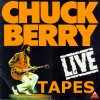
Right now I'm trying to sell some of Hans' Vinyl rarities through eBay (in case you're interested, click here). I'm also offering some Berry stuff which is only gathering dust here such as a concert poster from 1978.
A second concert poster was sold within minutes. The poster was for a concert at the Grugahalle Essen, Germany in 1977. Artists in this case were Jerry Lee Lewis and a German band called Rudolf Rock und die Schocker. Those who weren't into the German Rock'n'Roll scene of the late 70s and early 80s have probably never heard of this band. But it's worth to know.
Initially Rudolf Rock und die Schocker wasn't a band at all. In 1976 it was just a fun gathering of well-known and well-respected musicians playing in famous bands around the Hamburg area. And the band name was a joke as well, playing with the name of a famous opera singer called Rudolf Schock. The band was formed by bass player Uli Salm (member of Leinemann). Other members came from bands such as Atlantis, Dirty Dogs, Rattles, Truck Stop, Udo Lindenberg Band, Nena Band and so on.
Rudolf Rock und die Schocker played German Rock'n'Roll. Half of the songs were cover versions of German artists from the 1950s such as Peter Kraus or Ted Herold. The other half were songs written by Salm, KrĂŒger and their friends which sounded like 1950s Rock'n'Roll at its best. Have a listen on the Internet (or buy the record) for instance of Schluckauf or Das war der Starclub.
I really liked this band in the late 1970s and I think they and not The Killer were the original reason why I went to the show. I lost track over the years as they changed personnel constantly and my interests moved. Uli Salm continues this project even today. Here's a 2010 recording called Arschloch. You need to understand German to get the lyrics, though.
All this came back into my mind when the poster shown was sold to ... Uli "Rudolf Rock" Salm! We exchanged some emails about the old times and about Chuck Berry.
There was always a lot of Chuck Berry in Rudolf Rock, for instance in Herzilein, which was their greatest success and a Rock'n'Roll-style cover of a then famous Volksmusik hit. And, as Uli told me, indeed he once played with Berry.
During a gig on December 6th, 1991 at the Hamburg concert hall, Chuck Berry was backed by Uli Salm on bass, Dicky Tarrach of the Rattles on drums, and Joja Wendt on piano. Uli sent me this photo for you all to see. Thanks, Uli!
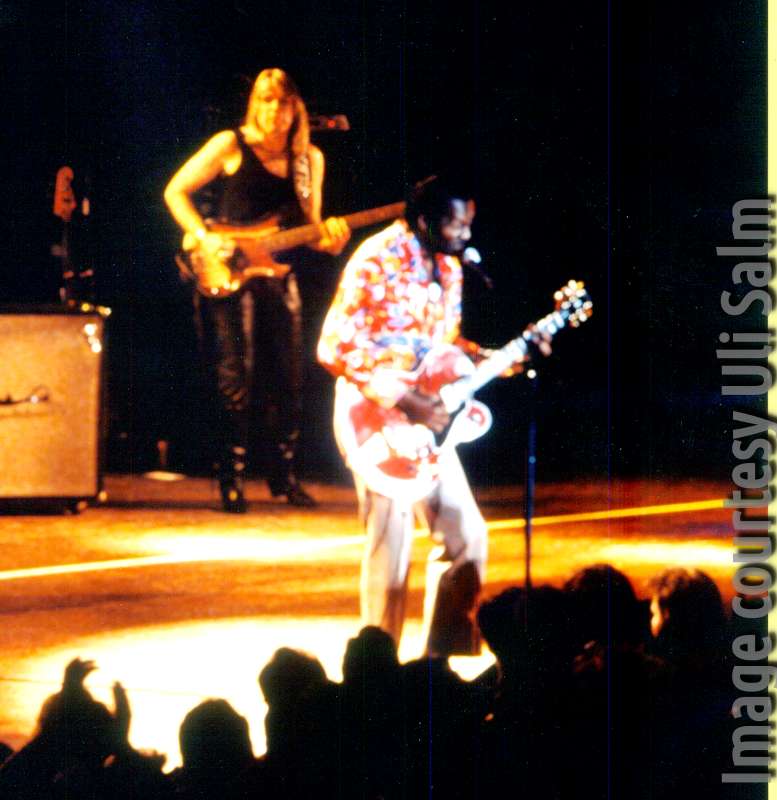
[By the way: Links in this article point to YouTube videos. I have always stayed away from linking to YouTube as German artists were excluded from royalties when their songs were played by Google/YouTube. However, last week YouTube and GEMA (that's the German BMI) finally agreed on royalties for German artists. I still recommend you buy CDs (or Vinyl) instead of listening to YouTube, though.]
Sunday, October 23. 2016
Chuck Berry the highest-paid guitarist 2016 - not
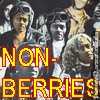
There will always be someone that believe everything they read.said Morten Reff and of course he's right.
Remember the birthdate of 18 October 1931 in San Jose, California. This is something that still turns up (not so often though, but Bill Wyman did) and will always be out there for someone to read and doubt 1926 and St. Louis, Missouri, although the movie "Hail, Hail Rock'n'Roll" did set the record straight.
The discussion came up when a German magazine claimed Berry to be listed as the highest-paid guitarist in 2016 by a magazine called "People With Money". The only fact herein is that the German magazine has fallen for one of the thousands of fake Internet "news".
There are as many fake accounts for politicians as are for celebrities. And there are fake gossip magazines such as "People With Money" which do not exist further than on the parody website mediamass.net.
Here's the fake cover which came with the "news" - courtesy of mediamass.net:
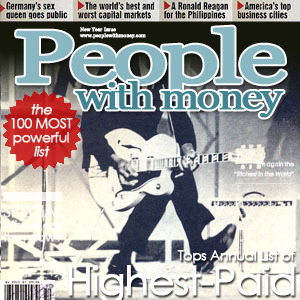
mediamass.net publishes all kinds of parodies to gossip magazines. The article about Berry's earnings is here: http://en.mediamass.net/people/chuck-berry/highest-paid.html
You may find this to be funny - or not. But you should never take it seriously. Especially not as a print magazine.
More and more people seem to forget that what you read on the Internet is NOT reliable information. ANYONE can write ANYTHING on the Internet, whether true or not. Believe only those texts which come from sites YOU trust. And when in doubt, try to find the original source. In this case, try to find "People With Money" magazine - it doesn't exist!
So to put things straight: Chuck Berry does not own the âFat Berry Burgerâ restaurants chain as it does not exist. Chuck Berry does not own the âSaint Louis Angelsâ football team as such does not exist. No, he does not have his own brand of Vodka (Pure Wonderberry), and both the top-selling perfume "With Love from Chuck" and the fashion line called "Chuck Berry Seduction" are fakes. Nobody knows his estimated net worth — maybe not even Berry himself. And to refer to other Mediamass parodies: No, he will not be Times' Person of the Year 2016, we don't expect a 2017 World Tour, he has not been dubbed "the Sexiest Guitarist Alive", and I really doubt he's expecting a baby - at 90 years old.
But sometimes even parodies cannot be more absurd than real life: One of mediamass' parodies covered a new Chuck Berry album to be released in 2017: http://en.mediamass.net/people/chuck-berry/new-album.html. OK, that's a rumor which is repeated every second year since 1979. But last week Chuck Berry's family announced a new album to be released in 2017. I had to laugh as this blog post was next to finished when I saw the Rolling Stone article. Too funny if mediamass' parody should become true. And likewise too funny if Rolling Stone repeats a mediamass.net parody
Oh, and by the way: D.J. Fontana will have a new album released in 2017 as well. Read here: http://en.mediamass.net/people/d-j-fontana/new-album.html
Main Page
This weblog is an addition to my Chuck Berry fansite called "A Collector's Guide to the Music of Chuck Berry" which describes all books and records of interest to everyone enjoying Chuck Berry's music.
Categories
What You Missed
Some earlier but important entries:
- Unanswered questions about the recording of Memphis, Tennessee
- Sweet Little Eight Variants of Sweet Little Sixteen
- The Johnny B. Goode Session
- Chuck Berry in Stereo
- Chuck Berry's Recording Session for Volkswagen
- Chuck Berry's Recording Session for Dr Pepper
- Tim McFarlin Introduces the Berry-Johnson Test into American Copyright Law
- Chuck Berry's Early Recording Locations
- Run! Rudolph, the Red-Nosed Reindeer â and the copyright mystery
- Chuck Berry live in New York 1956
- The very first Chuck Berry LP album
- The Chuck Berry On Stage (Chess LP-1480) confusion continues
- The Chuck Berry Vinyl Bootlegs, Vol. 1: Rare Berries
- Rocksmuk album - bootleg or not?
- 6034 cover versions of Chuck Berry songs
- Chuck Berry's Greatest Hits (Chess LP-1485) variants
Recent Entries
- CHUCK100 Tribute EP Series
- Thursday, January 16 2025
- CBID - Corrections, Additions, New Covers
- Friday, January 10 2025
- Rhythm and Rhyme - Chuck Berryâs poetic heartbeat
- Sunday, December 22 2024
- CBID - 6034 and counting ...
- Friday, November 1 2024
- CBID - 6034 cover versions of Chuck Berry songs
- Friday, July 5 2024
- CBID - The Never Ending Story - pt. 9
- Monday, June 10 2024
- CBID - The Never Ending Story - pt. 8
- Tuesday, June 4 2024
- CBID - The Never Ending Story - pt. 7
- Monday, April 22 2024
- Peter OâNeilâs So-Called Disorder
- Friday, April 12 2024
- The Chuck Berry Sound according to Atomicat
- Wednesday, April 10 2024
- CBID - The Never Ending Story - pt. 6
- Wednesday, April 3 2024
- CBID - The Never Ending Story - pt. 5
- Saturday, March 16 2024
- CBID - The Never Ending Story - pt. 4
- Monday, February 19 2024
- CBID - The Never Ending Story - pt. 3
- Monday, February 5 2024
- CBID - The Never Ending Story - pt. 2
- Monday, January 22 2024
- The Chuck Berry Vinyl Bootlegs, Vol. 3: America's Hottest Wax
- Tuesday, January 16 2024
- Chuck Berry in Fake Stereo
- Friday, January 12 2024
- CBID - The Never Ending Story
- Thursday, January 11 2024
- CBID - 5639 cover versions of Chuck Berry songs
- Tuesday, October 31 2023
- CBID - Covers, Chart Listings, and Not-Covers
- Monday, August 28 2023
- CBID - And they play Chuck Berry music - final part 10
- Monday, March 27 2023
- Little Queenie overdubs
- Monday, March 13 2023
- CBID - And they play Chuck Berry music - part 9
- Saturday, March 4 2023
- Lonely School Days - the variants explained
- Tuesday, January 31 2023
- An Interview with Johnnie Johnson - 1987
- Sunday, January 29 2023
Search
Copyright and Disclaimer
© Dietmar Rudolph
No part of this document may be used or published without written consent by the author.
Impressum/Haftungsausschluss/Datenschutz/Disclaimer
To contact the authors, email to cbguide@crlf.de.
